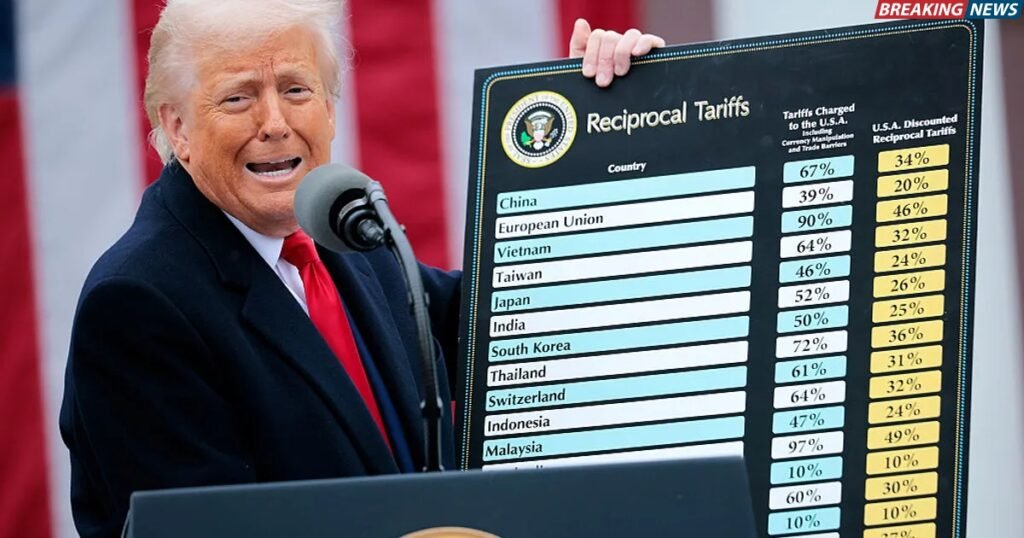
Merck & Co. has revealed it expects to incur a $200 million loss this year due to existing tariffs introduced during the Trump administration. As trade tension between the U.S. and China persists, the pharmaceutical giant is feeling financial pressure. The announcement highlights the lasting impact of past trade policies on major industries like healthcare and pharmaceuticals.
A Costly Forecast: Merck Projects $200M Loss
Merck & Co. anticipates a $200 million financial impact due to the existing U.S.-China Trump tariffs, reflecting ongoing challenges posed by their trade tension. Despite this, the company reported a robust first quarter, with adjusted earnings per share rising to $2.22, surpassing analyst expectations.
However, total sales saw a slight decline of 1.6% to $15.53 billion, influenced by a 41% drop in Gardasil vaccine sales in China. Merck maintained its 2025 revenue forecast between $64.1 billion and $65.6 billion but has slightly lowered its adjusted earnings per share estimate to $8.82 to $8.97. Thus accounting for the tariff-related costs and licensing charges associated with Hengrui Pharma.
Trump Tariffs Taking a Toll on Big Pharma
Trump’s tariffs continue to exert pressure on the U.S. pharmaceutical industry, affecting both financial performance and operational strategies. The consequences following the tariff announcements:
- Merck Projected $200 Million Loss: The pharmaceutical giant expected a $200 million loss due to expenses stemming from a global 10% import tax and retaliatory tariffs from China.
- Generic Drug Manufacturers Face Financial Strain: Generic drugmakers, operating on thin profit margins, are generally vulnerable. The Association for Accessible Medicines warns that new tariffs could exacerbate existing drug shortages and force manufacturers to exit the market. Therefore, it threatens patient access to affordable medicines.
- Pharmaceutical Companies Adjust Production Strategies: In response to tariff pressures, companies like Roche are shifting production to the U.S. and seeking tariff exemptions. Roche has pledged a $50 billion investment in U.S. operations over the next 5 years, aiming to mitigate the impact of tariffs and strengthen domestic manufacturing capabilities.
Merck Breaks Down Financial Impact of Trade Policies
Merck provided a breakdown of the financial impact due to existing trade policies, mainly stemming from the Trump administration. Here’s a breakdown of the key impacts:
- Adjusted Earnings Outlooks: Despite robust first-quarter performance, Merck has slightly lowered its full-year adjusted earnings per share (EPS) forecast to range from $8.82 to $8.97, down from the previous estimate of $8.88 to $9.03. Such adjustment accounts for the tariff-related costs and a licensing charge associated with Hengrui Pharma.
- Impact on Product Sales: The company reported a 41% decline in sales of its HPV vaccine, Gardasil, due to reduced demand in China. Therefore, this drop contributed to a 1.6% decrease in total sales for the quarter.
- Strategic Investments in U.S. Manufacturing: To mitigate the impact of tariffs and strengthen its supply chain, Merck has invested over $12 billion in U.S. manufacturing and research facilities since 2018. The company plans to invest an additional amount of $19 billion by the end of 2028, including the recent opening of a $1 billion vaccine manufacturing facility in Durham, North Carolina.
Disruption of the Pharmaceutical Supply Chain
Due to the reimplementation and expansion of tariffs initiated by President Trump, the U.S. pharmaceutical supply chain is under significant pressure. These tariffs include everything from raw materials sourcing to drug pricing.
- Supply Chain Disruptions and Drug Shortage: The American Society of Health-System Pharmacists (ASHP) reports 270 active drug shortages. Tariffs contribute to these shortages by disrupting the importation of essential components and finished products, leading to delays and increased prices in the supply chain.
- Tariffs on Active Pharmaceutical Ingredients (APIs) and Raw Materials: The U.S. has imposed a 10% blanket tariff on all imported goods, including critical components for drug manufacturing, such as APIs, excipients, packaging materials, and processing equipment. Thus, such a move disrupts the previous tariff-free pharmaceutical trade established under the 1995 WTO agreement, leading to increased production costs and supply chain complexities.
Conclusion
The enduring impact of Trump’s tariffs continues to weigh heavily on the pharmaceutical industry. Merck’s projected $200 million loss underscores broader challenges, from disrupted supply chains to increased production costs. As trade tension persists, companies must adapt strategically to safeguard profitability and ensure continued access to critical medications.



